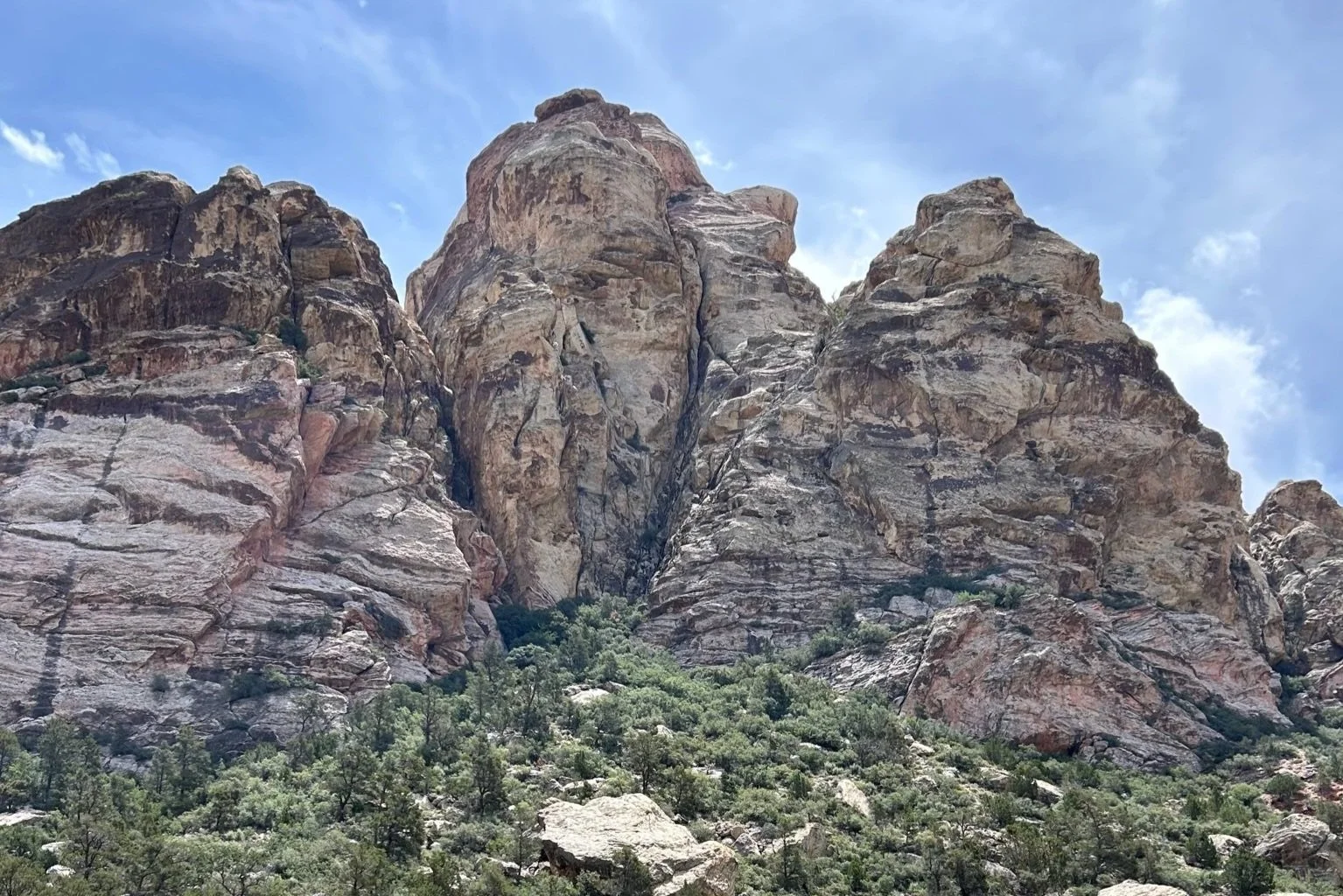What you can learn from a billionaire's peekaboo will
What you can learn from a billionaire's peekaboo will
A conversation with estate attorney Daniel Michaelsen
Published: May 6, 2025
I read a lot of news articles, and then I like to text my smart friends to give me their insights. When I read about how a will had been found for Tony Hsieh under mysterious circumstances, I reached out to my estate attorney buddy, Daniel Michaelsen, for his thoughts on what may have happened — and what lessons we can learn about how a little bit of planning can save your estate from big fees — and your family from big headaches in a time of grief.
Caitlyn: Daniel, thank you for making the time!
Daniel: Of course – first, before we jump in, do you know how cool Nevada is?
Caitlyn: My impression is that Nevada is literally dusty. Please elaborate.
Daniel: Basically, if you’re a billionaire, you’re going to do your trusts in Nevada. First, Nevada won’t tax income from a trust, so that’s great. Second, in most states, a trust can only last so long because as a society, we generally agree that the dead shouldn’t control the living. “Life plus 21 years” is usually the rule, but not Nevada. You can have 365 years for a dynasty trust. What a state.
About Tony Hseih
Caitlyn: Well, you know one billionaire who didn’t prepare his trust in Nevada – or, actually, it turns out that he did. I wanted to talk with you about this article from the Wall Street Journal: Zappos billionaire Tony Hsieh died in 2021 at age 46 without a will, so his estate has been in the courts for years – except, through a mysterious turn of events, a will has just recently been discovered.
When I lived in Las Vegas before business school, Tony Hsieh’s influence was so powerful. The New York Times was writing about Vegas as the next U.S. tech hub, cool new bars opening all the time, cool new people moving to town. Then I moved back to Vegas after the pandemic and Hsieh's death, and Downtown felt more like a hipster frozen-in-2015 “Last of Us” than anything else. Amazon shut down the Zappos office, foot traffic never recovered. Some places are still open but it’s not what it was. It really was a light that went out in our neon city.
So I want to know: as an estate attorney, what do you think about this turn of events?
Daniel: First, you told me we should talk about this because it’s rare, but this is actually very common. It’s rare for the dollars to be this big, but it’s actually very common for someone to create a will but no one knows about it. The whole thing goes to probate, someone gets the house, they drill open a safe, and ta-da! There was a will this whole time.
Caitlyn: You’ve seen this before?
Daniel: I see it all the time. People don’t like to talk about death, and their financial life feels very private. There also seems to be this unspoken “oh well, I’ll tell someone about it if they need to know” – but of course, you can’t predict when you’re going to die.
I’m just speculating, but he was 46 when he passed – when he made this will, he probably thought this was a preliminary document that wouldn’t ever be used. Everyone always thinks they have more time.
Dying Without a Will
Caitlyn: So someone dies without a will. What happens?
Daniel: Everyone has an estate plan; it just may not be one you wrote. Every state has their own rules for how property will be distributed for someone without a will: to a spouse, split among children, to a cousin if that’s the closest relative, etc.
How does the state do this? Probate court. Every estate goes to probate, eventually. But here’s the thing about probate: it can take months or years to get the court date set up, the court may not distribute things the way you’d want, and probate can be expensive! Each state has a statutory code deciding what percentage of your estate will be paid to an attorney and an executor, then there are the court fees on top. These fees add up quickly and there is no need to pay any of it if you plan properly.
Caitlyn: So since it was thought that Tony Hseih died without a will, it’s been in probate for a long time.
Daniel: For years and years, and it’s been very expensive: I saw a number like $15 million in fees to lawyers. But even for normies who just have a house, a checking account and a small life insurance policy, probate can still take years and a chunk of your assets.
Caitlyn: So how does a will help this process?
Daniel: Let’s be clear, a will can help probate move more quickly and in a way that respects your wishes, but a will alone doesn’t help you bypass or minimize probate. For that, you need other tools like trusts and account beneficiary designations, and that’s another conversation.
Caitlyn: A great conversation to have with a financial advisor!
Daniel: Or a financial advisor. Or both! I often work with a financial advisor to strategize and implement a plan for a client.
Storing the Will
Caitlyn: So let’s say someone has a will. What should they do with it? As an estate attorney, do you store people’s wills for them?
Daniel: Eh, that’s old-fashioned. Back in the day, attorneys would hold onto documents for clients: they’d have great big document safes. But now we have these things called “computers” –
Caitlyn: I’ve heard of those.
Daniel: – right, so young cool hip attorneys like me expressly do not provide document storage. We send digital copies to our clients and tell them to make sure people know where to find them.
Caitlyn: So give me the checklist you give your clients. Do they need to tell people the contents of their will while they’re living, or can you just tell someone that it’s in the shoebox under your bed if they need to go looking for it?
Daniel: So you have documents for while you’re living and documents for when you’re dead. Your living documents – the instructions and permissions for if you’re incapacitated – you need to make sure your loved ones have digital copies of those they can access quickly. That’s your powers of attorney documents, your health records access permissions, etc. Make sure someone could pull those up on their phone easily if there was an emergency.
Your will, you really can just tell someone where it is. Have a physical printed copy that someone can find easily; don’t put it in a safe where no one knows the combination. Don’t assume your spouse will be alive to own this process.
Caitlyn: You really want to make it easy for the people you’re leaving behind.
Daniel: Exactly. Make it easy for a responsible person to find your passwords. The last thing you want is a shocked and grieving loved one spending hours with Apple technical support to try and break into your iPhone so they can pull pictures for your memorial.
The “Why” Behind Some Seeming-Oddities
Caitlyn: The article highlighted some interesting aspects of the will that was found: there were five witnesses, Hsieh apparently recorded a video describing his wishes, and there’s a clause that all family members will be disinherited if any of them contest the will. What’s that about?
Daniel: Rules vary by states, but you don’t need that much rigamarole for a will to be valid. In most states, it’s just two witnesses, and some states will even accept a handwritten will with no witnesses. However, you’re not restricted to the minimums for legitimacy. You can go above and beyond the requirement to emphasize that this document reflects your wishes and make it harder to contest. That’s why you’d have not just two witnesses, you’d have five witnesses. Usually, when people record a video, too, it’s to demonstrate that they were mentally competent: “Look, see, I wasn’t drunk or suffering from dementia when I wrote this.”
Caitlyn: I feel like I learned a lot about contesting wills when I was watching horrible TV during my maternity leave.
Daniel: Yeah, so the Wall Street Journal article also says that his will references a prior will that would take effect if that will was found to be invalid. That’s common and, in some ways, a best practice. Your life changes a lot over time, and you’ll modify your will as you add children, your estate becomes more complex, etc. I tell people they should get their first will written sooner rather than later, while their life is less complex, because it will only get more complex over time and it’s easier to amend a simpler will than to draw up a new, complex will from scratch for the first time. And if one will is found to be invalid for some reason, you can hope a prior version holds up.
Daniel: Thank you for wanting to talk about death with me. None of my friends ever reach out because they want to talk about death.
Caitlyn: I’ll talk about death with you any time. Thanks, Daniel.
About Daniel Michaelsen
Daniel Michaelsen is an estate planning attorney based in Sacramento, California. He comes from a family that put little emphasis on financial literacy and now dedicates his professional life to helping people understand how to improve their families’ next generation financially. He has a golden retriever and spends any time not talking to clients about estate planning out running or somewhere outdoors. Contact Daniel via his website at www.michaelsenlawfirm.com — and see pictures of aforementioned pup.
Author: Caitlyn Driehorst
Date Published: 5/1/2025
Webinar: Difficult Financial Conversations with Aging Parents
What you should understand today with your parents to prepare for their final years — and how to broach these challenging topics
Your dad doesn’t bounce out of the recliner quite as quickly. Your mom breezily answers your tentative questions: “Oh, we’re fine, now don’t you worry.” Your parents have always said they’d love to support your kids’ college, but it gets slippery when you ask if they’d like to contribute to a 529 plan today. At the same time, you read headlines about seniors ruined by financial scams, or have friends unwinding complex probate administration. God forbid, if there was a stroke or heart attack tomorrow, what would you do?
Before you head home for the holidays, join financial advisor Hannah Farrow for a compassionate, tactical discussion of the conversations you need to have with your parents about financial affairs and their wishes for end-of-life – while protecting their dignity.
Can’t make this time? All registrants will receive a recording of the session, but we invite you to attend the live session to ask questions and download the accompanying hand-outs.
See important disclosures here: https://www.rightwisewealth.com/marketing-disclosures


